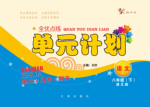题目内容
【题目】阅读下面短文,在空白处填入1个适当的单词或括号内单词的正确形式。
You've heard of getting lost in a book. Now, get ready to get lost in a “river of books” Zhongshuge, a bookstore in Yangzhou, China. When 【1】(walk ) into Zhongshuge, you're surrounded on all sides by a tunnel of books. An 【2】(architecture) studio called X+Living designed Zhongshuge. The shelves 【3】(arrange) in curved shapes to create the tunnel-like appearance.
The floor is covered with black mirrors, reflecting the shelves above and creating the feel 【4】 the bookshelves continue down past the floor you’re standing 【5】. As it turns out, the store's design has more 【6】(significant) than just a fun feel. Yangzhou is full of canals and rivers. X+Living, therefore, 【7】 (combine) this concept with Zhongshuge 【8】 (perfect) , and tried to create a "river" of books. As if all that weren't enough, Zhongshuge has【9】amazing space for children's books as well. The bookshelves are shaped like houses, clouds, and even a hot air balloon 【10】 (offer) them a paradise.
【答案】
【1】walking
【2】architectural
【3】are arranged
【4】that
【5】on
【6】significance
【7】combined
【8】perfectly
【9】an
【10】to offer
【解析】
这是一篇说明文。文章主要介绍了中国扬州的一家书店——钟书阁,介绍了店内的设计布置等情况。
【1】考查省略句。在when连接的状语从句中,常省略跟主句相同的主语和be动词。本句完整为when (you are) walking into Zhongshuge。故填walking。
【2】考查形容词。修饰名词studio应用形容词architectural,表示“建筑学的”。故填architectural。
【3】考查动词时态及语态。本句中主语与谓语动词构成被动关系,且描述客观事实应用一般现在时,主语为shelves,故谓语动词用复数形式。故填are arranged。
【4】考查同位语从句。句意:地板上覆盖着黑色的镜子,反射着上面的书架,营造出书架一直向下延伸到你脚下的感觉。此处为同位语从句修饰先行词feel,且从句中不缺少成分,故用that。故填that。
【5】考查介词。根据短语stand on表示“站在”,故填on。
【6】考查名词。句意:事实证明,这家店的设计不仅仅是一种有趣的感觉,更具有意义。此处做动词has的宾语,应用名词significance“意义,重要性”。故填significance。
【7】考查动词时态。combine在句中作谓语动词,且根据后文并列谓语and tried可知,应用一般过去时。故填combined。
【8】考查副词。此处修饰动词combine应用副词perfectly,表示“完美地”。故填perfectly。
【9】考查冠词。句意:似乎这一切还不够,钟书阁还有一个惊人的儿童书籍空间。space此处表示“间隔”为可数名词,此处表泛指应用不定冠词,且amazing为元音音素开头的单词。故填an。
【10】考查非谓语动词。句意:书架的形状像房子,像云彩,甚至像一个热气球,为他们提供了一个天堂。分析句子结构可知offer在句中作非谓语动词,且此处为做目的状语应用不定式。故填to offer。
状语从句中的省略
(1)在when, while, if, as if, though (或although), as, until, once, whether, unless, where等连词连接的状语从句中,常省略跟主句相同的主语和be动词。如:
When (water is) pure, water is a colorless liquid. 水纯净时,是无色的液体。
When (I am) in trouble I always turn to her for help. 我困难时总是找她帮助。
Errors, if (there are) any, should be corrected. 如果有什么错误,就应当改正。
Wood gives much smoke while (wood is) burning. 木头燃烧时放出大量烟雾。
The letter is to be left here until (it is) called for. 这封信留在这里待领。
Henry looked about as if (he were) in search of something. 亨利向四周环视,似乎在寻找什么。
She studies very hard though (she is) still rather weak. 她尽管体弱,但学习仍十分努力。
(2)“when (或if, where, wherever, whenever, as soon as, as fast as, than等)+possible/necessary等”,中间省略了it is (或was)。如:
Answer these questions, if (it is) possible without referring to the book. 如果有可能,请不看书回答这些问题。
When (it is) necessary you can help us to do something. 必要时你可以帮助我们做些事。
如第一小题,在when连接的状语从句中,常省略跟主句相同的主语和be动词。本句完整为when (you are) walking into Zhongshuge。故填walking。

 全优点练单元计划系列答案
全优点练单元计划系列答案